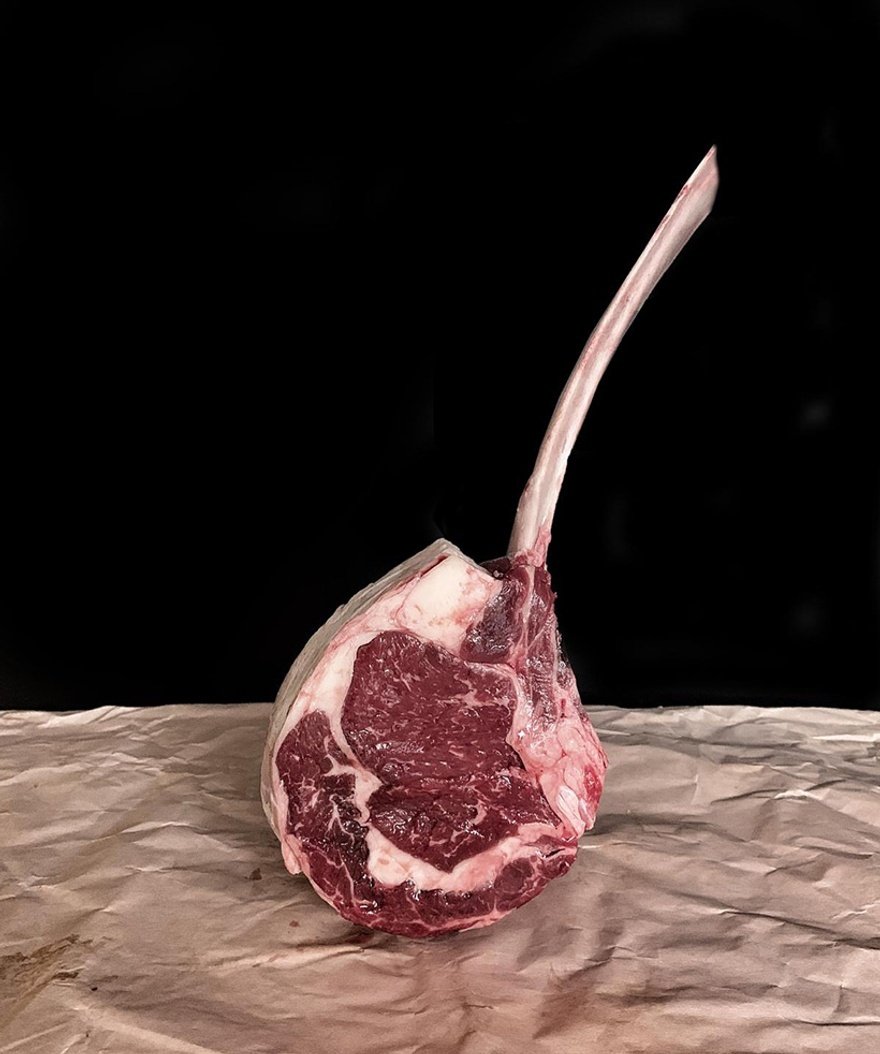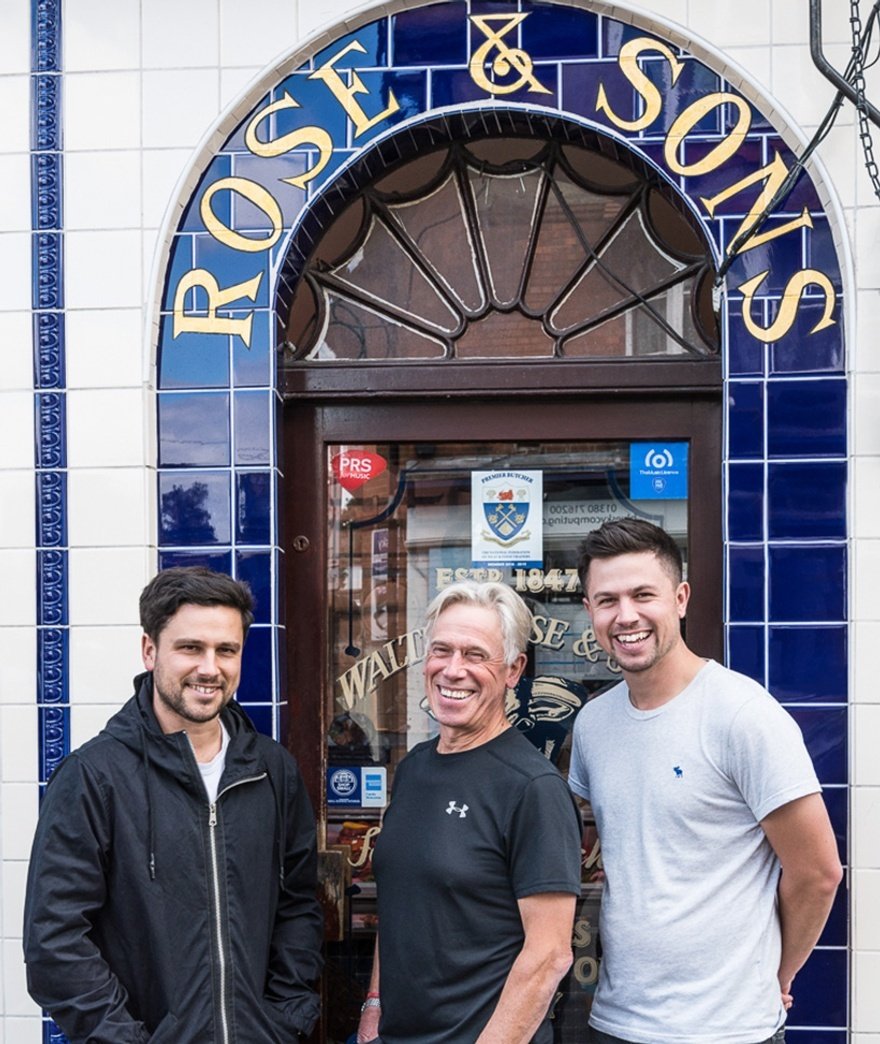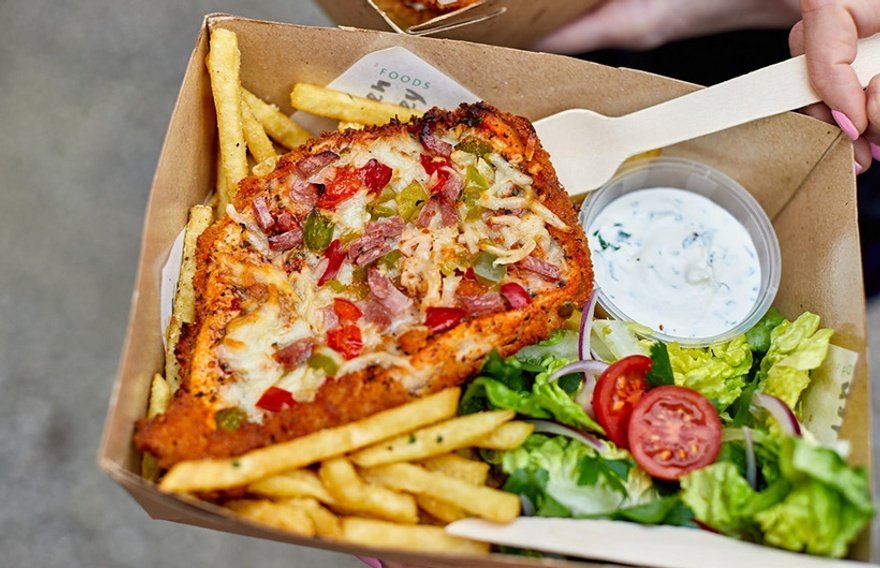The Agriculture and Horticulture Development Board (AHDB), a levy board funded by farmers and growers in the UK, says home cooking during lockdown has rekindled a love of meat.
According to AHDB, the number of people eating more meat has risen from 7% to 14% since February. Its figures also show that 71% of consumers agree that farmers did a good job ensuring that food production continued during the pandemic.
However, the industry's push for people to buy British is currently affecting less than a quarter of shoppers, with only 22% saying they would purchase home-grown and home-reared produce if they were more expensive than alternatives.
Christine Watts, chief officer for communications and market development at AHDB, says: "The work shows that ‘Britishness' is often a secondary factor for consumers. Therefore, industry messages need to go further than the country of origin and towards key points of difference, such as traceability, sustainability and quality.
"Only half of consumers said they would seek out British products post-pandemic. However, we have a great story to tell about what we produce in this country and about the products for consumers to enjoy.
"What is heartening is that many people are returning to familiar staples. There is more cooking from scratch, so people are buying the ingredients they need rather than ready-cooked dishes."
Quality cuts
What can chefs do to promote the consumption of quality British meat? The AHDB #makeit campaigns have built recipe inspiration around steaks and other high-value meat cuts.
Adam Lestrelle, head chef at the Roehampton Club in London, took part in the #makeitsteak campaign with AHDB and is currently competing in the #makeitlamb knock-out challenge. He says: "Meat sales are doing well here, and our customers do prefer local and British high-welfare produce.
"As a chef my preference is for Dingley Dell pork, we source our beef very carefully and our chicken is free range. It's our biggest selling protein and we use it in our chicken club and coronation sandwiches and chicken Caesar salad.
"The AHDB meat development programme was great during lockdown as it kept chefs engaged with each other via Zoom and in providing continued learning."
Susie Stannard, consumer insight manager at AHDB and author of the AHDB report, Trust in Farming and Coronavirus, adds: "There is much positivity in how consumers feel about farming, and a growing acknowledgement of the important role that meat plays in the British diet. However, in the face of an impending recession, factors such as provenance, environment and welfare temporarily take a back seat to price and availability.
"It is important that the industry continues to make demonstrable progress in areas such as welfare and the environment, alongside the very clear immediate focus on how best to continue to deliver safe, affordable and sustainable food."
Homegrown talent
A letter sent to the prime minister in June signed by chef Brian Turner and John Williams, executive chef of the Ritz London, and president and chairman of the Royal Academy of Culinary Arts respectively, raised the subject of a post-Brexit food standards campaign alongside UK agriculture and trade bills.
The letter states that "UK restaurants and cooking talent are considered among the best in the world... the quality and integrity of the food produced by our Royal Academy of Culinary Arts chef members and others in hospitality have helped to create this global reputation. They can only do this by working with products from the best suppliers produced to the highest standards. Most of these are home-produced by local, seasonal and artisan businesses which they willingly champion."
The letter implores the government to examine UK standards: "We are dismayed that the UK government is close to missing a critical opportunity to uphold our high food ethics in its new agriculture bill by not banning low-standard imports. This risks exposing us all to poor-quality food, produced cheaply by cutting corners in food safety, animal welfare (including unnecessary use of prophylactic antibiotics; hormones, etc) and their unsustainable environmental impact."
The letter relates the high environmental standards that UK farmers and food producer partners work to and states that they should not be forced to compete against cheap imports.
It concludes: "The quality and ethics of our food are paramount and we cannot allow standards to be lowered for the sake of fast-track trade deals."
Steve Cook, director at family catering butchers Walter Rose & Son, believes quality meat products will always sell well. He says: "Meat and poultry sales increased for us during the Covid-19 pandemic, where there was a huge surge in the demand for home delivery and customers ordering online. With regards to the quality, high-welfare, proven provenance side of the market, trade continues to grow at a steady pace."
Cook says that his home delivery service was so popular during lockdown that the father and son business invested in a website to cope with the huge upsurge in online sales of meat.
Walter Rose & Son has also been working with Wiltshire County Council to distribute ‘paid forward' meat boxes to families facing food poverty across Wiltshire, and they have delivered around 100 boxes to those in need. Co-director Jack Cook explains: "We have been doing home delivery for 173 years, but never to this extent, which was, of course, completely unprecedented. It did soften the blow felt from the closure of cafés, pubs, hotels and restaurants.
Walter Rose & Son and other high street butchers' shops account for 8.5% of beef and pork and 12% of lamb sold. Chef Alan Paton believes butchers will be asked to do more by their customers, and that they will be asked for advice on the best cuts to buy. "It has been well documented how busy butchers in the high street were during lockdown. I truly hope that these guys who delivered to their customers are not forgotten and that they keep their trade levels up.
"I also think that a lot of chefs will have used their time during lockdown proactively and will be delivering new, innovative dishes now hospitality is opening again. It is a truly exciting time to support local restaurants."
Beef it up
"Beef sales at Walter Rose & Son have gone through the roof," says Steve Cook. The business's showpiece steaks, such as the Stokes Marsh Farm T-bone and the tomahawk, sell well. He says that any cut with intra-muscular fat will always be popular with chefs and are the tastiest, as the fat melts into the meat and adds flavour and texture. "We have tested the theory and beef on the bone honestly makes a huge difference to the flavour of the meat," he says.
However, Cook's most popular cut is rib-eye steak. Rib-eye on the bone – the "show-stopping tomahawk steak" – is described by Cook as "caveman-esque" and he sells hundreds every week. Cook says "there is something primeval, carnivorous and theatrical about the American-born tomahawk cut – and it makes for great theatre for outdoor cooking."
Loving lamb
AHDB, Quality Meat Scotland and Hybu Cig Cymru – Meat Promotion Wales have come together on the #makeitwithlamb campaign to help highlight the meat's versatility and simplicity as a cooking ingredient.
Red meat such as lamb is one of the main sources of vitamin B12, which typically is only found naturally in animal products such as meat and milk. Vitamin B12 helps the immune system to work normally, helps reduce tiredness and fatigue and supports normal psychological function.
The message is clear that as we get back to business in hospitality, chefs would want us to think about quality over quantity. Provenance over profit and sustainability over short-term gain. There's a place for all high-welfare product on our plates.
Finger lickin' chicken
Gordon Lauder, managing director of frozen food distributor Central Foods, says chicken was an absolute must-have on takeaway, click and collect, and delivery menus throughout the lockdown period.
"We've seen very strong demand for our Golden Valley Foods poultry range and predict that the takeaway, click and collect, and delivery sectors will remain buoyant as we move forward. Customers have become accustomed to the convenience."
However, he adds, the trends being seen just before lockdown are set to continue: "The first was the growing demand for gluten-free chicken products and Central Foods has certainly seen a significant increase in demand for all free-from items across the board.
"The second key trend is linked into the first, because we found – and are still finding – that good-quality chicken is proving immensely popular. Research by Mintel showed that 45% of Brits visited chicken shops in 2019 and 72% said this was because burger and chicken restaurants are offering more healthy options than a year ago.
"Look for poultry products from suppliers who can demonstrate they have recognised health and safety and hygiene accreditation, for reassurance and peace of mind for both yourself and your customers."
Nigel Parkes, commercial director at Creative Foods Europe, makes the case for chicken being healthier than red meat. "Not only is chicken suitable for a wide range of different cooking styles, and for satisfying ever-changing global flavour trends, but it is also relatively low in fat, and seen as being healthier than red meats. It is for these reasons that it has undoubtedly fared better than other meats in the face of the vegan and vegetarian boom."
Parkes cites recent research that shows that chicken is growing in popularity out of home, with its increased presence on chain restaurant and contemporary fast-food menus. A MCA Menu Tracker in March 2019 (Chicken Dish Analysis) says that growth in the chicken market is expected to increase by 13% between 2019 and 2024 to reach a value of £2.6b.
Parkes believes one of the biggest growth areas for the sale of chicken products is street food, with the UK market estimated at £1.2b in 2018. "The growth in street food would certainly explain the popularity of two of our Harvest Farms products: our Chicken Fries and Pop In Chicken pieces, perfect for light bites, kids' meals and bar snacks.
Mike Holton, brand manager at Wall's Pastry (part of the Addo Food Group), suggests that as with all categories, when it comes to new products entering the market, innovation is key.
"Although the vegan and vegetarian boom has undoubtedly rocked the category within the last few years, the impact that the UK's lockdown has had on the whole market cannot be ignored," he says. "More people will be looking for ‘pick me up' moments due to the lockdown, and that the biggest rise in the poultry category will come from in-home snacking.
"When it comes to reinvigorating the meat snacking market, brands must acknowledge the changing dynamic of consumer demand and expand their range to include products that are not only convenient but are also flexitarian-friendly and appeal to health-conscious younger generations – just like our recently launched Wall's Pastry chicken Scotch egg.
"It's a simple yet innovative twist to the traditional pork-based snack – and has also been developed as a healthier alternative, with 2.1g of saturated fat, 9g of fat, and 197 calories in the 113g snack. The chicken Scotch egg recipe, as well as our other chicken-based products, were developed with health-conscious flexitarian consumers in mind. We wanted to create a product that delivers first on flavour, but also contains significantly less fat, while offering an alternative to the red meat, pork-based product."
Suppliers and contacts
Addo Food Group
Agriculture and Horticulture Development Board (AHDB)
www.ahdb.org.uk/news/consumer-insight-trust-in-farming-and-coronavirus
Central Foods
Creative Foods
Meat Promotion Wales
Quality Meat Scotland
Simple Beef & Lamb
www.simplybeefandlamb.co.uk/collections/lamb
Walter Rose & Son
Continue reading
You need to create an account to read this article. It's free and only requires a few basic details.
Already subscribed? Log In







